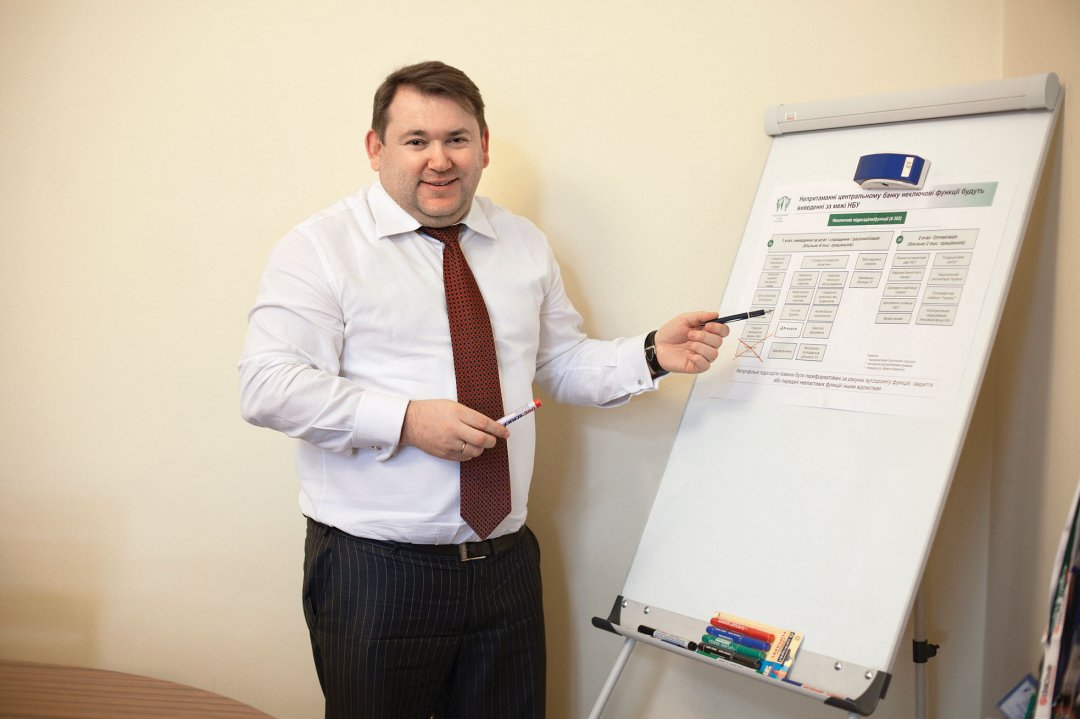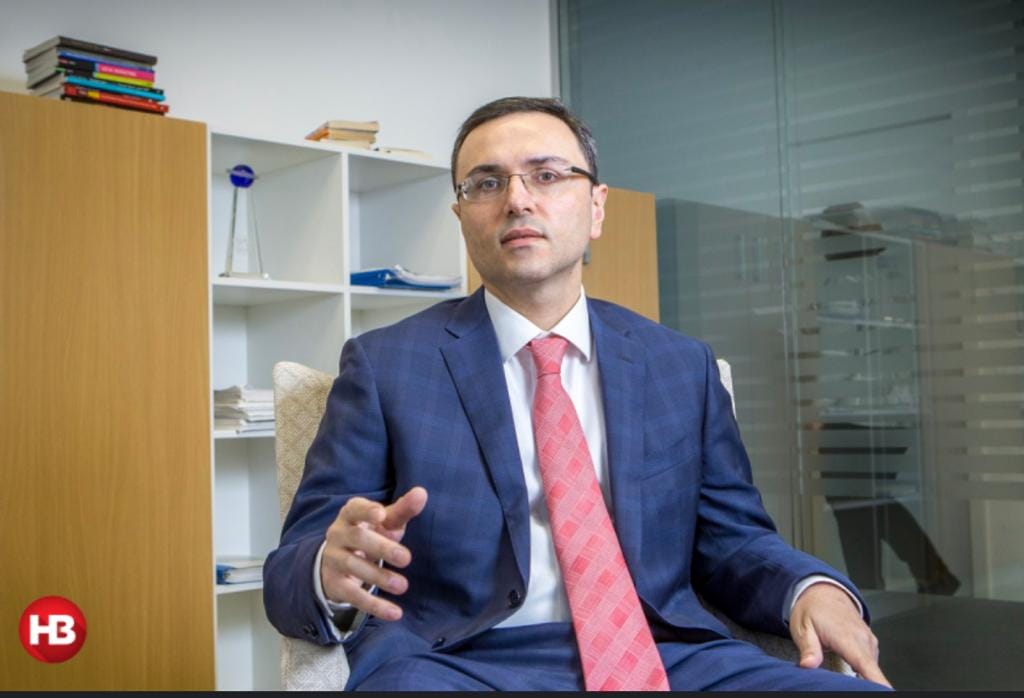
Implementation of the IMF's Benchmarks: What are the risks of delaying reforms
The following review of the government's commitments to the IMF agreement is scheduled for September, but it is already clear that there are delays in meeting the IMF's Structural Benchmarks. The other donors followed the IMF when assessing Ukraine's progress on the reforms. Ukrinform contacted experts and stakeholders close to the process comment on what went wrong and the risks.
WHAT WENT WRONG WITH IMF STRUCTURAL BENCHMARKS?
On 31 March, the IMF approved a four-year program of $15.6bn for Ukraine, and in April, Ukraine received the first tranche of more than $2.7 billion.
The IMF program envisages the implementation of 23 IMF Structural Benchmarks - reforms aimed at maintaining economic stability in the context of high economic uncertainty due to the war, strengthening state institutions, and supporting European integration. Implementation of the IMF program is reviewed quarterly, and after the first review at the end of June, Ukraine, having fulfilled the first five IMF Structural Benchmarks on time (by the end of May), received the next tranche of USD 890 million.
However, further fulfillment of obligations to the IMF has been delayed. Ukraine has overdue at least two Benchmarks by the end of July. There is also uncertainty about another IMF Benchmark (relating to tax policy). There are certain risks that Ukraine will receive a negative assessment during the next "audit" of the IMF agreement scheduled for the end of September.
TABLE
IMF Structural Benchmarks for implementation in June-September 2023
No. | Structural Benchmark | Timing
6* | Adopt the draft law on tax policy and administration[number 8401] prepared under the PMB | End-July 2023
7 | Prepare a conditions-based strategy to move to a more flexible exchange rate, ease FX controls and transition to inflation targeting | End-June 2023
8* | Transfer the GTSO shareholding directly to the Ministry of Energy and adopt the new charter | End-July 2023
9* | Enact the law to restore asset declaration of public officials not directly involved in the mobilization and war efforts and reinstating the NACP’s function to examine and verify them | End-July 2023
10 | Enact the articles of the Budget Code that allow preparation of the medium-term budget framework, elaboration of the debt strategy, and ringfencing risks from guarantees | End-September 2023
11 | Present in the 2024 budget declaration projections for major revenue and spending categories and sources of deficit financing for 2025-2026, and a fiscal risks statement including details on energy and critical infrastructure SOEs | End-September 2023
13 | Develop a concept note on the 5-7-9 program with proposals to target small and medium enterprises by phasing out the eligibility of large companies, enhance monitoring, and maintain adequate safeguards | End-September 2023
14* | Amend the AML/CFT Law to re-establish enhanced due diligence measures on politically exposed persons consistent with the risk-based approach consistent with the FATF standards | End-September 2023
15 | Strengthen bank governance and oversight by: (i) separating the related-parties-unit from banking supervision; (ii)implementing “supervisory panels” as a consulting body to the Supervisory Committee; and (iii) resume scheduled inspections for both banking and non-banking institutions, while ensuring NBU discretion on matters related to staff safety | End-September 2023
Source: https://www.imf.org
* Indicate problematic Benchmarks
Let's take a look at the problematic Structural Benchmarks.
On 28 July, the Verkhovna Rada adopted draft law No. 9311-1-d to reform the corporate governance of the Gas Transmission System Operator of Ukraine (GTSOU). However, the draft law still awaits the President's signature (Benchmark 8 in the table).
Also, on 27 July, lawmakers approved the first reading of draft law No. 9534 on the restoration of electronic declaration of officials (Benchmark 9). However, the National Agency for the Prevention of Corruption (NAPC) insists on considering all security aspects related to martial law. Hence, the agency insists on specific improvements in preparation for the second reading.
The most scandalous situation so far with Benchmark 6 is the returns of the pre-war tax system; some of its articles were temporarily suspended to help businesses survive the war. On 30 June, the Verkhovna Rada adopted the draft law "On Amendments to the Tax Code of Ukraine and Other Laws of Ukraine on Peculiarities of Taxation during Martial Law" (No. 84001). The President thought about it for a long time but finally signed it. The law came into force on 1 August 2023.

However, according to Yaroslav Zheleznyak, first deputy chairman of the Parliamentary Committee on Finance, Taxation and Customs Policy, at the last-minute lawmakers made amendments to the text that were not agreed with the IMF, that relate to the partial cancellation of the moratorium on tax audits.
WHEN TIME IS NOT IN UKRAINE'S FAVOUR
Hlib Vyshlinsky, Executive Director of the Centre for Economic Strategies, considers the status of Politically Exposed Person (PEP) as the most problematic issue with IMF (Benchmark 14). In May, the government submitted draft law No. 9269 to the parliament, bringing the status of PEPs back in line with the EU and FATF standards. If the law passes, it will provide officials with PEP status for a lifetime.

According to the expert, there is an issue with the electronic declaration of national public figures, whom banks should carry out additional financial monitoring.
"I think there will be discussions because proposed PEP status for a lifetime to all those involved in political life may make people unwilling to work for the state because it will create problems with banks for the rest of their lives," Vyshlinsky said.
However, he is confident that the IMF will allow the Ukrainian authorities to correct what is not in line with the terms of the agreement.
"I understand that the biggest problem is timing and what has been done so far. The next IMF mission is at the end of September, and the Ukrainian authorities will likely have a chance to fix everything. Also, Ukrainian lawmakers passed a lot of legislation in the summer," HlibVyshlinsky told Ukrinform.
Meanwhile, Yaroslav Zheleznyak, First Deputy Chairman of the Parliamentary Committee on Finance, Taxation, and Customs Policy, believes that the situation with the delay in the implementation of the IMF Benchmarks is serious, and Ukraine will face problems in September when the following review of the IMF agreement will take place.
"There are 23 IMF Benchmarks with certain deadlines, and Ukraine has already fulfilled five of them, but we haven't returned the declaration to officials, a deadline was of end July, and we haven't launched the reform of the GTSOU (Ukrainian gas transmission system operator), which deadline also by the end July. Moreover, Ukraine will not approve the issue of the PEP by the end of September. When the next quarterly review of the implementation of the agreement with the IMF comes, which will happen in September, we will have big problems," Zheleznyak commented.
He noted that in the case of the tax bill [draft law number 8401], the Ukrainian authorities asked the IMF to postpone its adoption for a month because there was not enough time to vote. Ukraine seemed to have fulfilled its obligations, but at the last minute, the Deputy Head of the Presidential Office, Rostyslav Shurma, initiated an amendment that removed tax audits, which directly violates the agreements with the IMF.
"I am convinced that they will not count this point (Benchmark 6) for Ukraine, which means we will have a problem with four Benchmarks. All other donors, including the World Bank, the US Embassy, and the European Commission, are guided by the IMF - they are all in sync with each other," Zheleznyak said.
Yuriy Gaidai, senior economist at the Centre for Economic Strategy, also believes the situation is problematic and carries risks for Ukraine.

"The situation with the IMF is quite serious, as there are several Benchmarks for which we are already overdue, and there are doubts that some of our efforts will be accepted by the IMF at all," the economist says.
He cites the example of the tax law, which changed the criteria for those subject to audits at the last minute.
"The list was narrowed to certain risky industries, such as gambling, financial services, and excisable goods. This was not agreed with the IMF, and there is a risk that they will not count the implementation of the Structural Benchmark and will postpone its deadlines with a clear requirement - what exactly should be done," explains Gaidai.
Among those " hanging Benchmarks," Gaidai named the transfer of GTSOU to the Ministry of Energy and electronic declaration.
RISKS OF DELAYING THE REFORMS
Due to the failure to meet the Structural Benchmarks, the IMF may stop disbursing tranches under its program. These amounts are not significant for us, as Ukraine receives more funding from the US and EU governments, but blocking IMF funding would hurt Ukraine's reputation.
"Cooperation with the IMF is a signal to all our other donors and partners about how Ukraine is progressing on the path of reforms and how responsibly the authorities are doing their 'homework.' If the next review of the program comes up with negative conclusions, it could significantly complicate our interaction with Western partners. I wouldn't affect military cooperation, but may put some economic cooperation and support on hold," said Gaidai.
He emphasized that the US and EU donors' assistance is aimed at financing only social expenditures, and donors check the targeted use of the funds provided, which is almost half of the Ukrainian budget.
"There is a risk that the social part of the budget will decrease due to a pause in funding until we fulfill the IMF's conditions. It will be a negative signal that carries a reputational risk for our country," says Gaidai.
The IMF demands that the Ukrainian authorities take steps to strengthen our country during the war. At the same time, the economist believes that martial law cannot be why Ukraine failed to fulfill its obligations to the IMF.
WHAT THE IMF SAYS
In an interview with Forbes in July, IMF Deputy Director Vladislav Rashkovan said that, in his opinion, Ukraine has time to fulfill all its obligations, and the fact that the economy remains stable during a full-scale war is already a significant achievement of the Ukrainian authorities.

"Reforms are always difficult in any country. However, the fact that Ukraine's economy is working smoothly during a difficult war and we are discussing reforms is a Ukrainian authorities' achievement," said the IMF Deputy Director.
Rashkovan also noted that among the national achievements is the adoption by the National Bank of a currency liberalization strategy and changes to the financial sector strategy aimed at restoring the country. The Ministry of Finance has also returned to medium-term budget planning and public debt management.

At the same time, the International Monetary Fund is closely monitoring the implementation of the Benchmarks. In particular, the tax one.
"We are reviewing the final version of the law (draft law 8401) to assess its consistency with the agreed strategy, which will determine whether the Structural Benchmark was met," IMF Resident Representative to Ukraine Vahram Stepanyan commented Ukrinform.
Despite optimistic statements by IMF representatives, it is clear that Ukraine has already overdue two reforms (improving corporate governance of GTSOU and e-declaration for officials). Given the existing reputational and financial risks, the government must rectify the situation to maintain part of Western support.
Aleksandra Klitina, Kyiv
First photo: EPA/UPG




